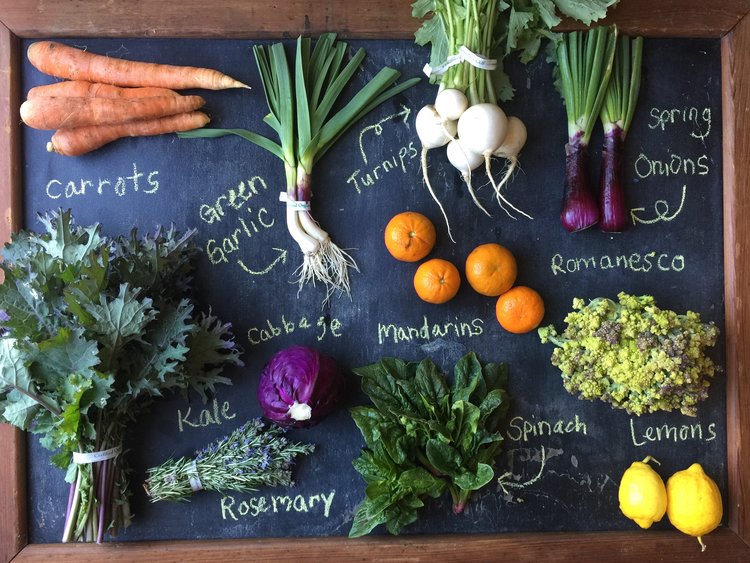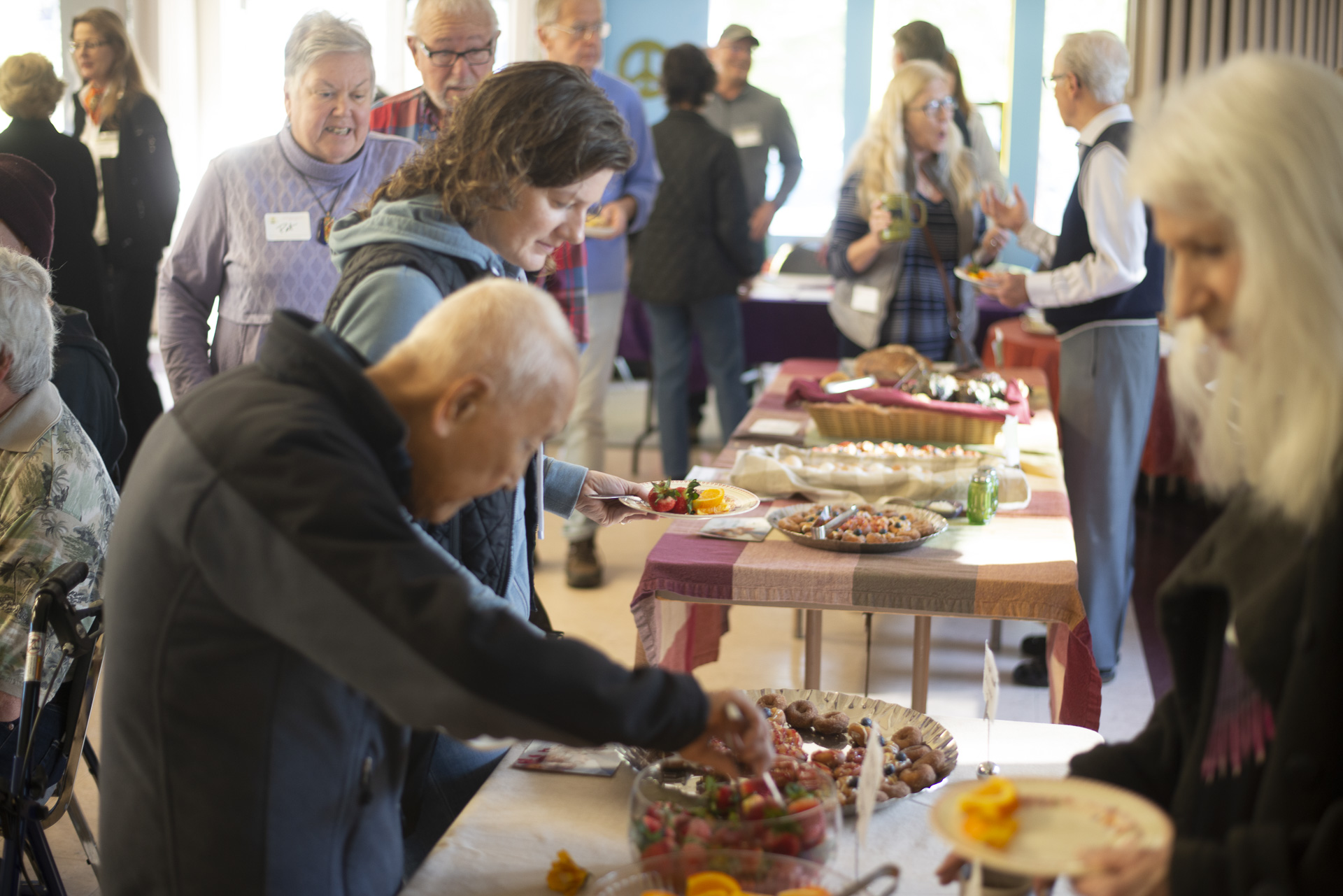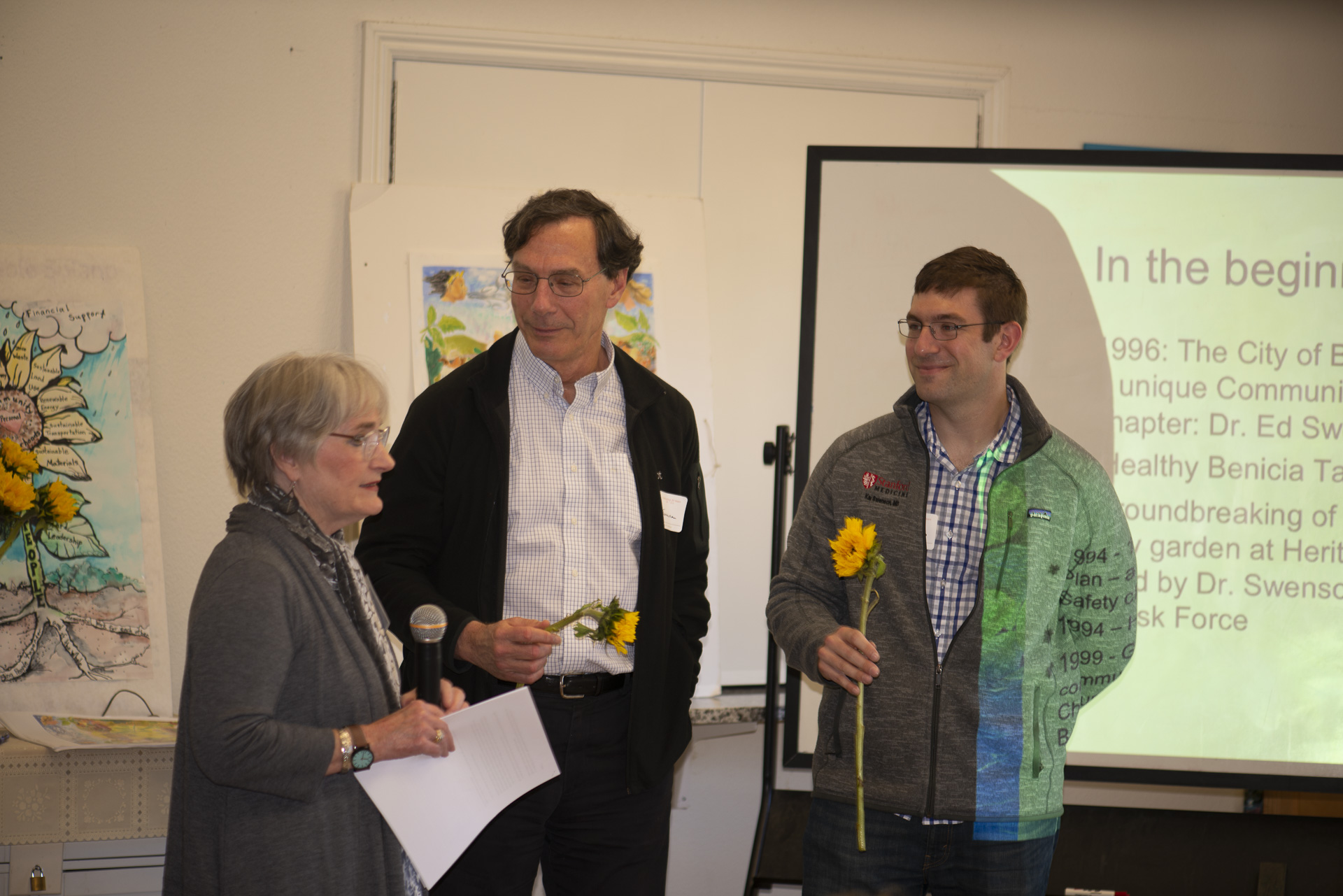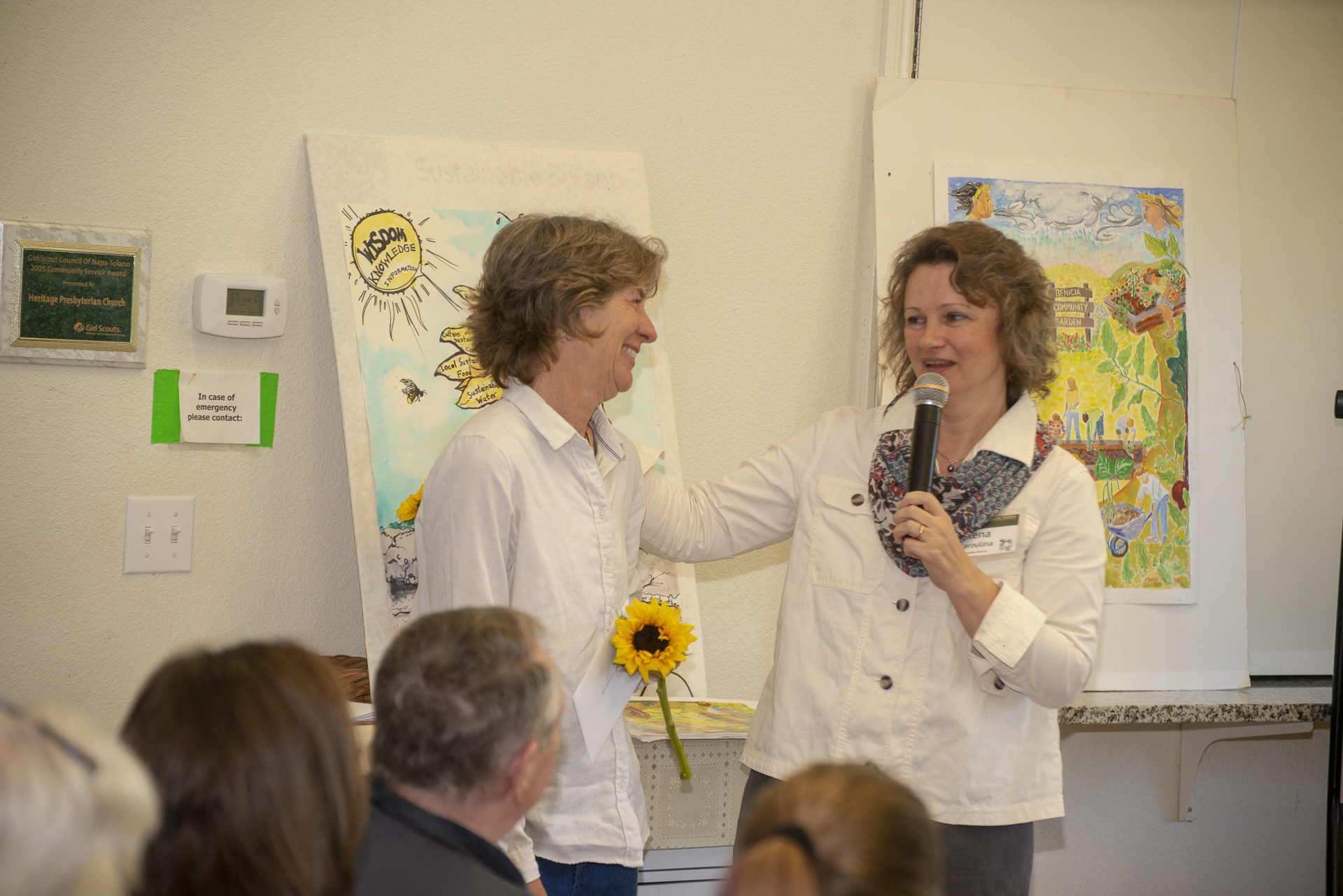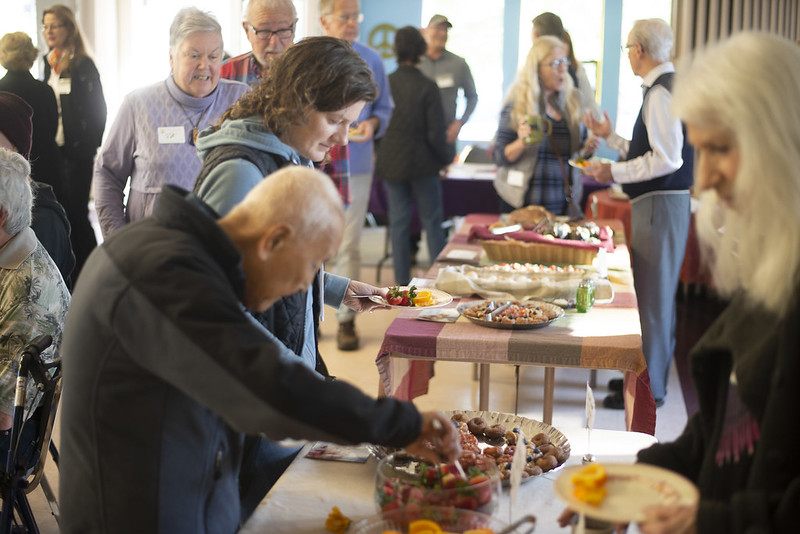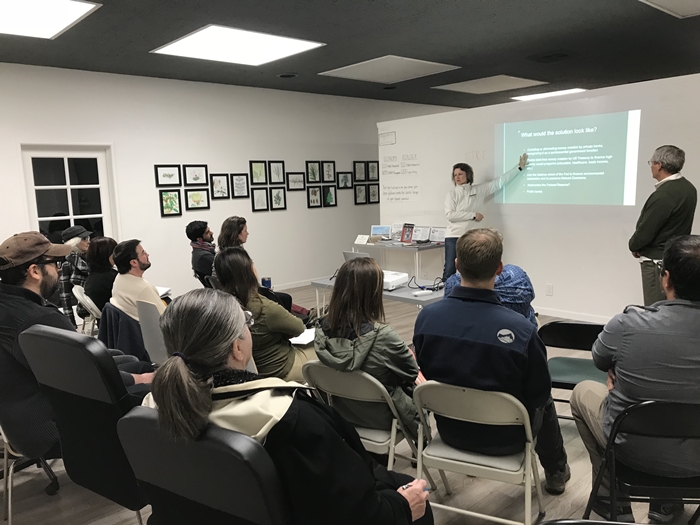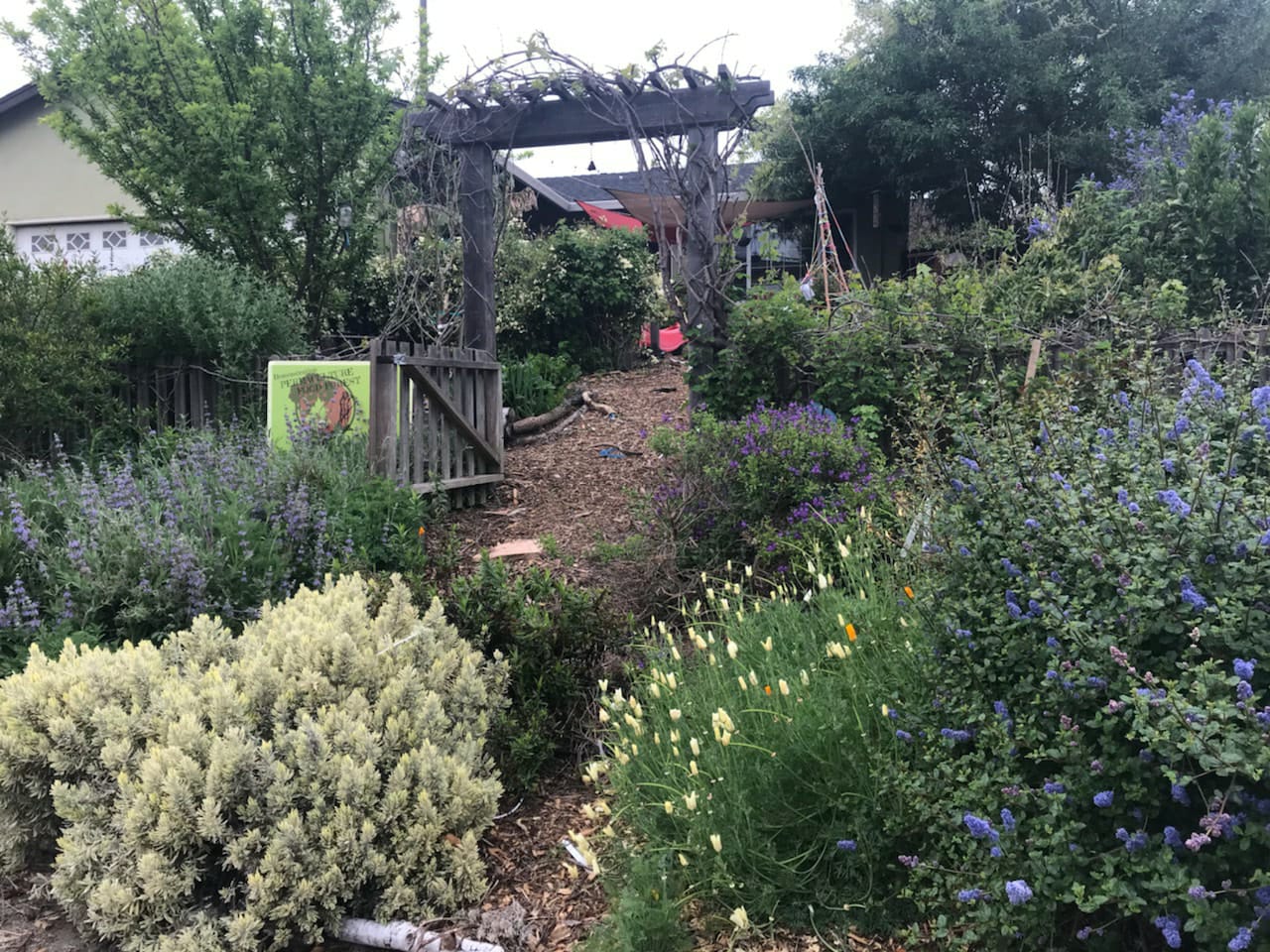Caretaking of Nature and Community: A Conversation Between Wendell Berry and Helena Norberg-Hodge
By Sustainable Solano
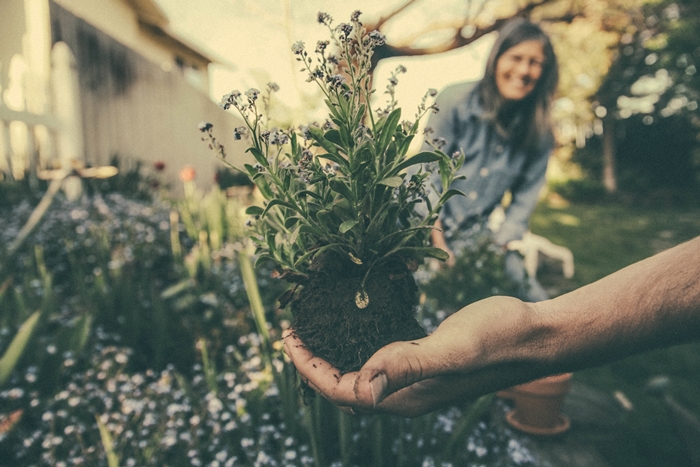
We’ve been doing a lot of thinking on the need to move to an economy that is informed by the indigenous ways of caring for both our local communities and our environment. So imagine our delight when we read a discussion between local economy advocates Helena Norberg-Hodge and Wendell Berry that ranges across human nature, technology, experiential knowledge, agriculture policy, happiness, wildness and local food systems.
Helena Norberg-Hodge is the founder and director of Local Futures, which works to renew ecological, social and spiritual well-being by promoting a systemic shift toward economic localization through decentralized, regional economies. Wendell Berry, poet, author and activist, is known for his advocacy for ecology, rural life and small-scale farming.
With permission from Helena Norberg-Hodge, who first recorded the conversation for her Local Futures podcast, we are reprinting a short excerpt below from the version that ran in Orion Magazine:
Norberg-Hodge: It’s also important to realize that the real problem is not human nature, but what I think of as an inhuman system. One of the biggest problems we’re facing is that the system has become so big that we can’t see what we’re doing and what we’re contributing to. Our economic system is of such an inhuman scale that it has become like a giant machine — a global juggernaut that’s pushing us all into fear and a terrible sense of scarcity.
Berry: What one has to say to begin with is that, as humans, we are limited in intelligence and we really have no reliable foresight. So none of us will come up with answers to the whole great problem. What we can do is judge our behavior, our history, and our present situation by a better standard than “efficiency” or “profit,” or those measures that we’re still using to determine economic decisions. The standard that I always come back to is the health of the world, which is the same as our own personal health. We can’t distinguish our health from the health of everything else. And we know enough from the ecologists now to know that health is a very complex and un-understandable complexity of relationships that makes the world whole.
Norberg-Hodge: Rather than those economic measures you referred to, the goal needs to be human and ecological well-being. And when people are more dependent on the living community around them — both the human and the nonhuman — then it becomes obvious that their well-being is connected to the well-being of the other.
Berry: It seems to me that it all depends upon our ability to accept limits. And the present economic system doesn’t even acknowledge limits. It is “develop[ing] resources” — which is to say, turning resources into riches (which is to say, money) — which leads almost inevitably to destruction. Money is an abstraction. Goods are particular, and always available within limits — natural limits, and the rightful limits of our consumption.
Norberg-Hodge: And in order for us to see those limits, we need a more human-scale, localized economy.
Berry: It would mean even more if we said a community economy, and we meant by economy the original sense of “household management” or “housekeeping.” That would imply taking the best possible care of the life supports of, first, the household economy, then the neighborhood economy, then the community economy. And we can go on from there on the principle of community, if we take it in the sense of “what we all have in common,” and an obligation to take care of all of it. But it will only be manageable locally, and within limits — the limits, among other things, of our own intelligence and our own capacity to act responsibly.
For the full conversation, which delves more richly into the interplay of the economy, the environment and the shift from global to local, listen to the podcast here or read the full transcript here.

